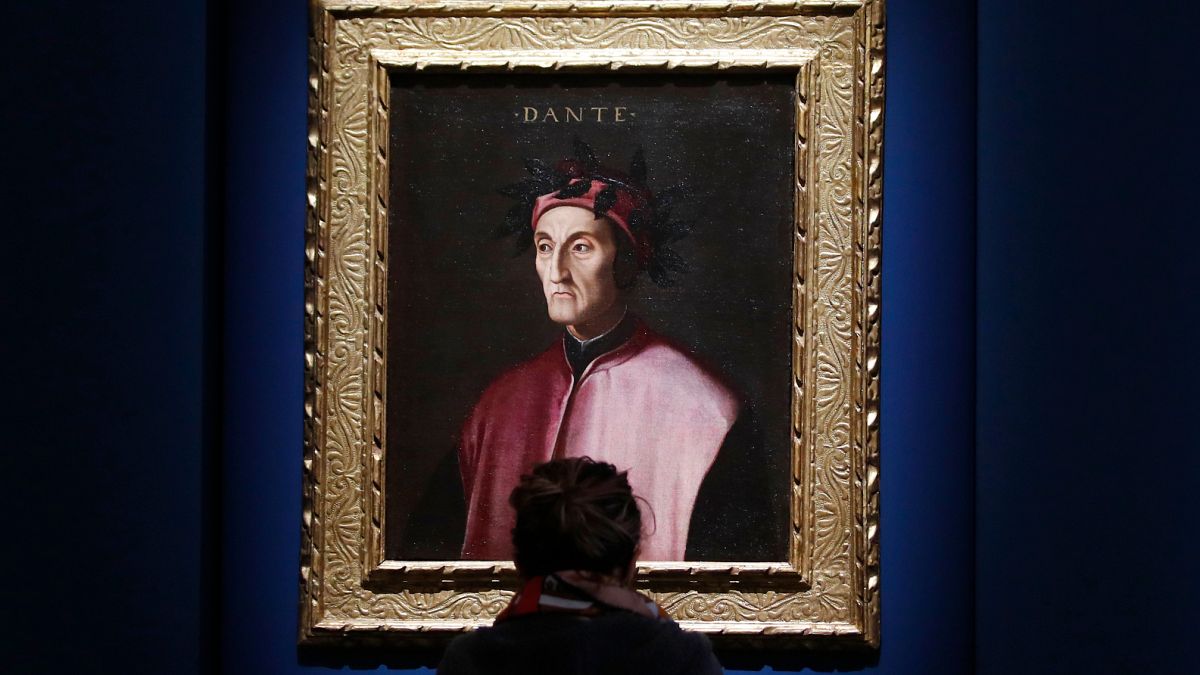The author of the Divine Comedy left Florence in 1302 never to return.
Italy’s most famous poet, Dante Alighieri, was forced from his native town of Florence because of his political affiliation. This is the assertion from a group of lawyers in May 2021, despite the exile taking place over 700 years ago.
The father of the Italian language was exiled in 1302 and later sentenced to death following a coup by his political rivals and allies to the Pope, the Black Guelfs.
The sentence that led to his exile was re-examined in Florence on Friday, as part of initiatives for the 700th anniversary of the poet's death.
"Florence always felt a bit guilty for what it did to one of its most famous citizens", told Euronews Dante's 19th direct descendant, Sperello di Serego Alighieri.
"It led to a series of attempts to repair what they did, and that event was part of it", he said after taking part in it.
The author of the Divine Comedy died in Ravenna in 1321 after spending his post-exile years hosted in many different Italian courts, often demanding to return to Florence, but without ever making it back.
"His remains stayed in Ravenna, and Florence has always tried to get them back," says Dante's descendant.
The Florentines "even built a mausoleum inside the Santa Croce church to host them. But Ravenna never returned them".
"I think they should stay there because he died there", he added.
Asked about what his ancestor would think of the re-examination process, Sperello Alighieri says Dante "would laugh" about it.
"It can't have any practical effect, although it is interesting to examine the historical and juridical reasons that led to his exile".
Dante's masterwork was completed the year before his death and takes readers on a spectacular journey through hell, purgatory, and heaven.
American literary critic Harold Bloom wrote widely on Dante's work.
“The two indispensable European poets have to be Dante and Shakespeare,” he asserted in his final book.
